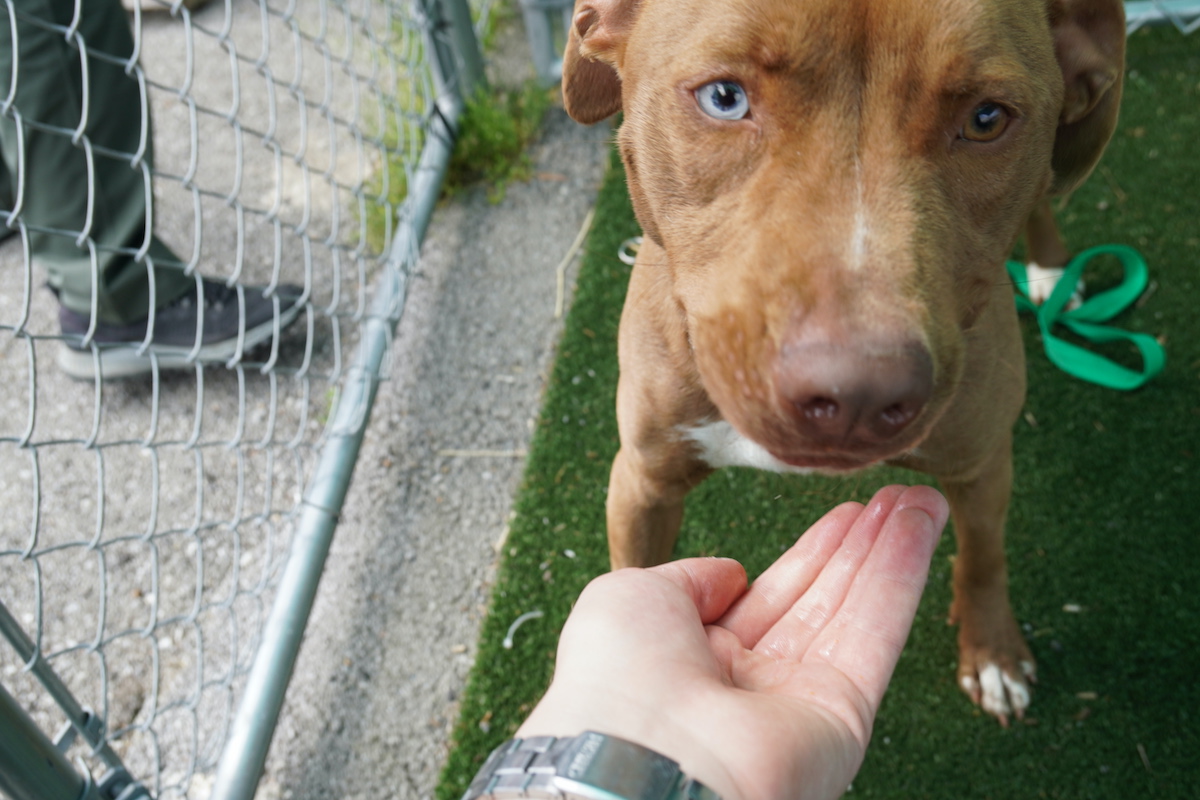In recent years, shelters throughout California have become overwhelmed with abandoned dogs and cats, leading to more of the animals being euthanized, according to pet advocates.
Why this has happened and ideas about how to turn around the issue were discussed on a recent episode of EpochTV’s “California Insider,” on which Zach Skow, the founder of Marley’s Mutts Dog Rescue, located in Central California about 40 miles southeast of Bakersfield, sat down with host Siyamak Khorrami.
California and Texas routinely lead the nation with surrenders to animal shelters, Skow said. When not adopted, about 100,000 animals are euthanized at shelters in California each year for non-medical reasons, according to the Koret Shelter Medicine Program at the University of California–Davis.
But there has been an increase of animals being surrendered to shelters since 2020, in part because of a trend of more people purchasing dogs from breeders—even through the mail—instead of adopting, according to Skow.
These days, shelters meant for 200 dogs now have twice that amount, Skow said, and some shelters in California are euthanizing 5,000 animals a year.
“There’s two to three to four dogs in every kennel where there’s supposed to be one,” he said. “To say [shelters] are overwhelmed is the understatement of the century.”
There’s a lot of finger-pointing regarding why, according to Skow. Some blame shelters for euthanizing the animals at all, while others accuse communities—specifically poorer neighborhoods—of not caring properly for their pets, such as by neutering them.
Data are kept on how many dogs and cats are surrendered in each community, which are valuable statistics, Skow said, that could open the door for a “cultural reckoning” on the issue.
“What we could be doing to help solve the problem is pulling marginalized communities into the solution,” he said.
That would entail bringing ongoing free, weekly, programs for neutering, vaccination, and chipping in such communities, according to Skow.
Otherwise, he said, “those dogs are coming in the front door of these animal shelters constantly, nonstop, all day.”
If such programs were long-lasting and predictable, they could blunt the increase of surrendered and euthanized cats and dogs, in what he said is a $100 billion shelter industry in the United States, where as many as half of the animals in shelters are killed.
“We keep them in some kind of residential setting and then end up euthanizing them,” he said. “It’s a mind-bogglingly cruel set-up.”
They have helped man forage and scavenge for centuries and are loyal and loving companions as “man’s best friend,” he said.
“And we’ve completely given up on them,” he said. “There’s not a dog in [a] shelter because of its decision. A dog is in [a] shelter because of decisions made by a human being.”
‘Didn’t Give Up on Me’
Skow said he learned the value of a dog’s companionship after he received a diagnosis in 2008 of end-stage liver disease and was given only 90 days to live.
He said he was initially suicidal but decided to go into recovery for alcohol and drugs. He said having his dogs—who were adopted—helped him get well and clean. The result was so positive, he said, that his diagnosis was ultimately downgraded.
“The only thing that got me through it was my dogs,” he said, along with the motivation to stay alive to be of service to them. “I’m a complete medical miracle anomaly, and I have animal rescue and welfare to thank for it. ... The only reason I am [here] is because I had three dogs that didn’t give up on me.”
Six months later, after understanding how his dogs helped save his life, Skow started Marley’s Mutts Dog Rescue, named after one of his dogs. The nonprofit rescues dogs from overcrowded shelters in an effort to prevent euthanasia and also offers training, re-homing, and networking to help lost or abandoned dogs find homes.
He more recently created a program called Pawsitive Change, where “incarcerated” shelter dogs are paired with those incarcerated in youth detention centers and prisons. He said he came up with the idea after a friend was released from a long prison sentence and was helped to reacclimate to a crime-free civilian life through the love and companionship of an adopted dog.
Incarcerated dogs—often on “death row,” set to be euthanized—and incarcerated inmates are a perfect match, Skow said.
“Incarceration and animal sheltering are both in the recesses of our society,” he said. “They’re [both] kept in the doldrums, in the dark corners of our society. ... The idea was what about [having] these two dark entities work with one another to create something positive?”
Now in eight California facilities, the program brings dogs to youth centers or prisons where “student inmates” care for them. He said that since the program was founded eight years ago, it has saved 650 dogs and graduated 1,200 student inmates, many of whom go on to work as dog trainers, behaviorists, and kennel technicians after their release.
He said that not one of those students has returned to prison—a remarkable feat, he said, as the national recidivism rate is 73 percent after five years.
Through the program, he said, inmates learn empathy, self-esteem, and responsibility by caring for something other than themselves.
“Our job with Pawsitive Change is to say, ‘Hey, I love you ... I believe in you ... I’m here for you ... and I trust you with this dog ... I trust you with this life,’” he said.
His hope, he said, is to expand Pawsitive Change in the state and nationally. Doing so, he said, can help not only incarcerated inmates but also dogs, as the prison system could become the largest foster pool for shelter animals.
“The goal is for us to implement as much Pawsitive Change around the United States as possible ... to help change the trajectory for countless incarcerated people and pets,” he said.
















